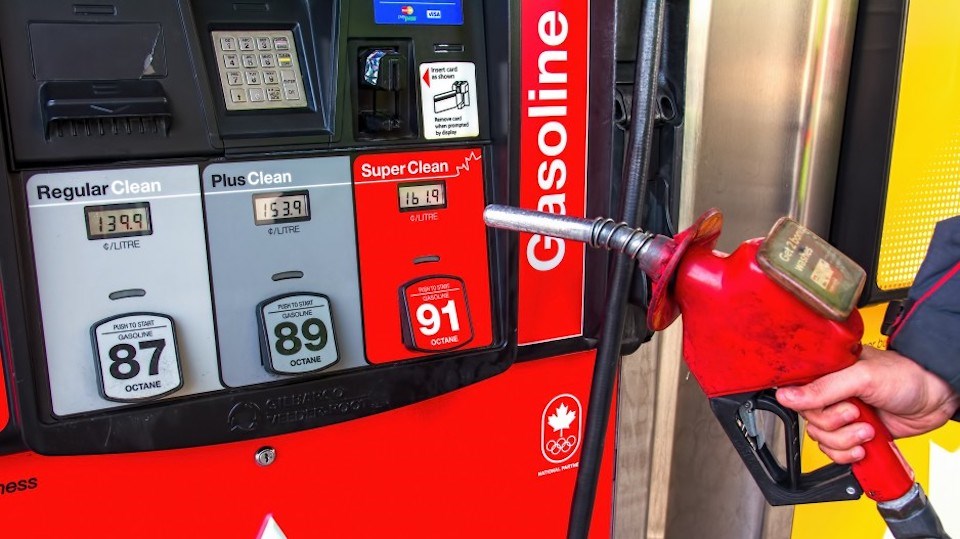Gasoline prices could cost as much as $1.81 per litre in Vancouver Friday, according to GasWizard, as war in Ukraine roils oil and natural gas markets.
According to GasBuddy, prices in Vancouver are in the $1.75 per litre range as of Thursday morning. But GasWizard predicts they could push above $1.80 per litre tomorrow. Dan McTeague, president of Canadians for Affordable Energy, predicts gasoline prices generally will go up 8 cents per litre in Canada, as a result of spiking oil prices.
Benchmark Brent crude shot up by about US$5 per barrel earlier this week to around US$95 per barrel, on the announcement that Germany was cancelling its agreement with Russia on the $11 billion Nord Stream 2 natural gas pipeline.
Today, following Russia’s military invasion of Ukraine, Brent crude prices have shot above the US$100 per barrel mark for the first time since 2014, dragging all other energy prices up with it, and global equities down.
Western Canadian Select is at US$78 per barrel today, according to oilp[rice.com – roughly a US$30 per barrel increase since the US$45 per barrel low at the end of November -- and North American natural gas prices are approaching US$5 per MMBTu – double what they were one year ago.
All of which means gasoline prices are going up, which will continue to fuel inflation.
Russia is an energy powerhouse. It is the world’s third largest oil producer, second largest natural gas producer and supplies Germany with much of its thermal coal. As such, Western sanctions against Russia could have serious impacts on global energy markets.
Germany’s decision to reject the new Nord Stream 2 natural gas pipeline earlier this week leaves Russia with an $11 billion pipeline to nowhere, and Germany now dependent on LNG imports, especially from the U.S. Western Canada could play a role in supplying Germany with natural gas indirectly through increased natural gas pipeline exports to the U.S. Gulf Coast, where its biggest LNG plants are located.
There is also likely to be an increased demand for Alberta oil in the U.S., since the U.S. gets about 3% of its crude oil from Russia – a supply that could suddenly dry up.
More to come...

